Understanding different types of marketing strategies revolutionizes business growth while delivering measurable results for companies worldwide. Discover comprehensive marketing approaches that generate exceptional ROI and accelerate professional success through proven methodologies.
Table of Contents
- Traditional Marketing Approaches
- Digital Marketing Strategy Categories
- Content-Based Marketing Methods
- Customer-Centric Marketing Techniques
- Performance Marketing Tactics
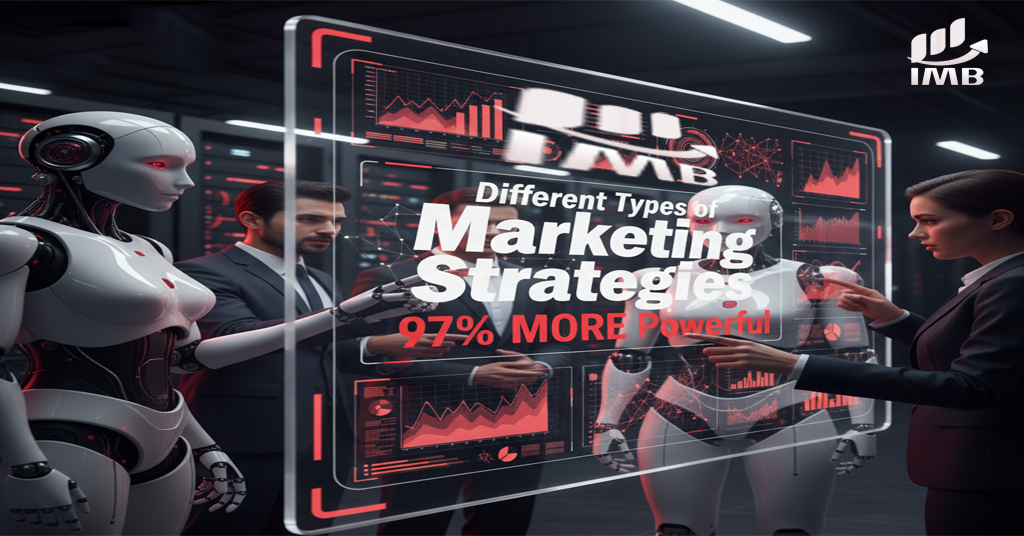
Understanding Marketing Strategy Fundamentals
Different types of marketing strategies form the foundation of successful business operations across all industries. Understanding different types of marketing strategies enables businesses to reach target audiences effectively while maximizing return on investment. These marketing approaches have evolved significantly, with 73% of companies reporting improved ROI when implementing diverse marketing tactics examples across multiple channels simultaneously.
Modern businesses require comprehensive understanding of various types of marketing to remain competitive. Implementing different types of marketing strategies systematically helps organizations adapt to changing consumer behaviors while maintaining competitive advantages. While traditional methods maintain relevance, digital transformation has introduced innovative marketing techniques examples that deliver unprecedented results for forward-thinking organizations.
Certified Marketing Courses
Join world-class training programs guided by international experts, and take your skills to the next level.
Reserve Your SeatTraditional Marketing Approaches
Traditional marketing methods continue delivering substantial value for businesses targeting specific demographics. Businesses implementing different types of marketing strategies through traditional channels achieve remarkable results. These established forms of marketing include print advertising, television commercials, radio spots, and direct mail campaigns that reach broad audiences effectively.
Radio marketing offers cost-effective solutions for local businesses seeking regional exposure. Organizations implementing different types of marketing strategies through radio advertising reach commuters during peak listening times. Moreover, direct mail campaigns achieve 4.9% response rates for prospect lists, significantly outperforming email marketing’s 0.6% average response rate consistently.
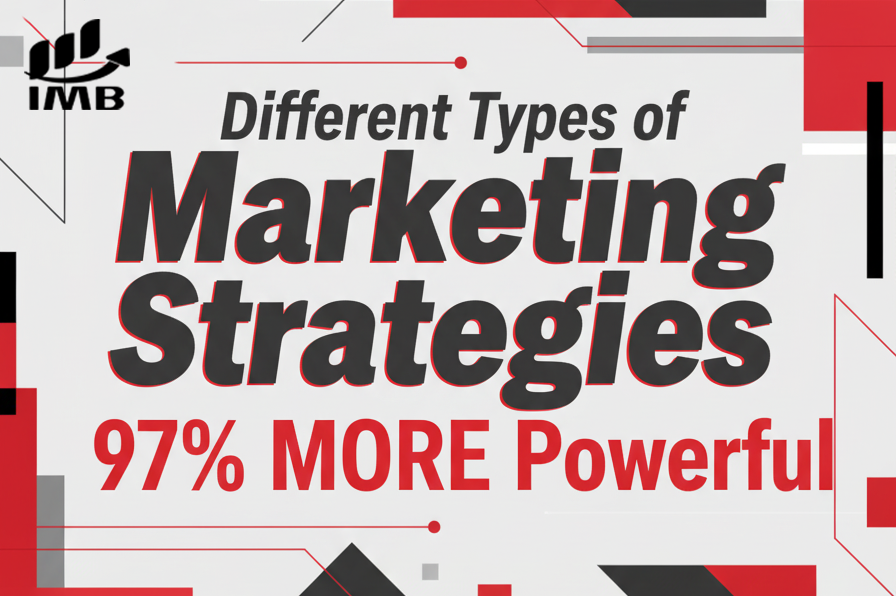
Digital Marketing Strategy Categories
Different types of marketing have expanded dramatically through digital innovation and technological advancement. Learning about different types of marketing strategies becomes essential for professionals seeking career advancement and business success. Digital marketing kinds encompass specialized techniques leveraging online platforms to reach target audiences with precision and measurable effectiveness.
Search Engine Marketing Mastery
Search engine marketing represents essential marketing techniques examples for modern businesses. Organizations using different types of marketing strategies in search engines gain significant competitive advantages. This approach combines search engine optimization (SEO) with pay-per-click (PPC) advertising strategies for comprehensive search visibility.
SEO focuses on improving organic search rankings through keyword optimization, content creation, and technical website improvements. Professionals mastering different types of marketing strategies through SEO achieve sustainable long-term results. Businesses implementing comprehensive SEO strategies typically experience 20% traffic increases within six months of consistent implementation.
PPC advertising delivers immediate search engine visibility, with advertisers paying only when users click advertisements. Google Ads captures 65% of commercial search query clicks, making it indispensable for business marketing types seeking rapid results.
Social Media Marketing Revolution
Social media platforms have become vital marketing avenues for businesses targeting younger demographics effectively. Companies utilizing different types of marketing strategies across social platforms maximize audience engagement and brand awareness. Facebook, Instagram, LinkedIn, Twitter, and TikTok each offer unique opportunities for audience engagement and sustainable brand building.
Facebook marketing reaches 2.9 billion monthly active users worldwide, providing extensive targeting options based on demographics, interests, behaviors, and purchasing patterns. Instagram’s visual-focused platform appeals particularly to businesses in fashion, food, and lifestyle industries.
LinkedIn serves as the premier platform for B2B marketing approaches, generating 80% of B2B leads through targeted campaigns. Meanwhile, TikTok’s algorithm-driven content discovery helps brands achieve viral reach among Generation Z consumers consistently

Certified Marketing Courses
Join world-class training programs guided by international experts, and take your skills to the next level.
Reserve Your SeatContent-Based Marketing Methods
Content marketing has emerged as one of the most effective various types of marketing strategies for building audience trust and establishing industry authority. Professionals who master different types of marketing strategies through content creation achieve superior engagement rates. This approach focuses on creating valuable, relevant content that attracts target audiences without direct promotional messaging.
Blog Marketing Excellence
Blog marketing generates 97% more links to company websites compared to traditional marketing methods. Marketers implementing different types of marketing strategies through blogging establish thought leadership in their industries. Businesses publishing regular blog content receive 55% more website visitors than those without active content strategies.
Successful blog marketing requires consistent publishing schedules, keyword optimization, and audience-focused content creation. Companies maintaining active blogs generate 126% more qualified leads than those without regular content publication efforts.
Video Marketing Dominance
Video content consumption has increased by 100% year-over-year across all digital platforms. Organizations leveraging different types of marketing strategies through video content achieve higher engagement rates consistently. Video marketing encompasses YouTube advertising, social media videos, webinars, and live streaming content for comprehensive audience engagement.
YouTube reaches more 18-49 year-olds than any television network, making it essential for different ways of marketing to younger audiences. Video testimonials increase conversion rates by 80%, while product demonstration videos reduce customer support inquiries by 43%.
Email Marketing Proficiency
Email marketing delivers the highest ROI among all marketing approaches, generating $42 for every dollar invested strategically. Teams executing different types of marketing strategies through email campaigns build stronger customer relationships. This marketing technique includes newsletter campaigns, automated drip sequences, and personalized promotional messaging.
Segmented email campaigns achieve 14.31% higher open rates compared to non-segmented approaches. Additionally, personalized email subject lines increase open rates by 26%, while triggered emails generate 70.5% higher open rates than traditional broadcast messages.
Customer-Centric Marketing Techniques
Modern types of marketing techniques increasingly prioritize customer experience and relationship building over short-term sales objectives. Companies implementing different types of marketing strategies with customer-centric approaches achieve higher retention rates. These strategies focus on long-term customer value creation through personalized interactions and exceptional service delivery.
Relationship Marketing Excellence
Relationship marketing emphasizes building lasting connections with customers through personalized communication and exceptional service experiences. Businesses applying different types of marketing strategies with relationship focus achieve higher customer lifetime values. This approach recognizes that acquiring new customers costs five times more than retaining existing ones effectively.
Customer loyalty programs increase average purchase frequency by 20% while reducing customer acquisition costs significantly. Furthermore, loyal customers spend 67% more than new customers, making relationship marketing essential for sustainable business growth.
Influencer Marketing Success
Influencer marketing leverages social media personalities and industry experts to promote products and services to established audiences. Brands implementing different types of marketing strategies through influencer partnerships reach authentic audiences effectively. This marketing strategy categories approach has become particularly effective for reaching younger demographics authentically.
Micro-influencers (1,000-100,000 followers) achieve 60% higher engagement rates than macro-influencers, while generating 22.2 times more conversations than typical brand posts. Influencer marketing campaigns generate $5.78 in earned media value for every dollar spent strategically.
Community Marketing Innovation
Community marketing builds engaged audiences around shared interests, values, or goals related to your brand. Online communities provide platforms for customer interaction, feedback collection, and peer-to-peer support systems.
Brand communities increase customer retention rates by 30% while generating 19% more revenue per customer annually. Moreover, community members demonstrate 77% higher lifetime value compared to non-community customers consistently.
Discover More Inside
Learn how IMB International Certifications can open global opportunities for your career.
Read More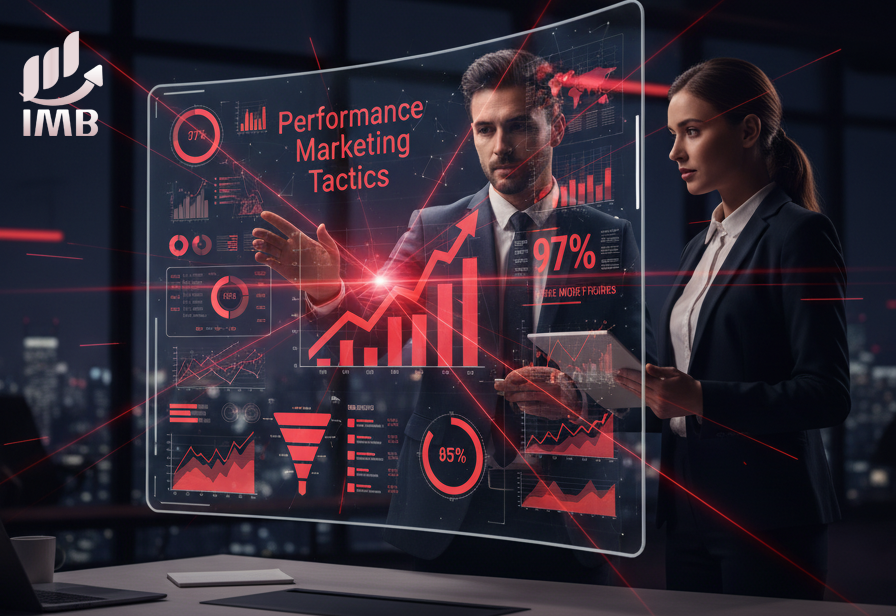
Performance Marketing Tactics
Performance marketing focuses on measurable results and data-driven optimization strategies. Businesses utilizing different types of marketing strategies in performance marketing achieve better ROI tracking capabilities. These various marketing techniques enable businesses to track return on investment accurately while adjusting strategies based on real-time performance data.
Affiliate Marketing Strategies
Affiliate marketing leverages partner networks to promote products and services through commission-based arrangements. Companies utilizing different types of marketing strategies through affiliate programs expand their market reach cost-effectively. This performance-driven approach accounts for 16% of all e-commerce sales globally across different industries.
When implementing affiliate programs, businesses should focus on recruiting high-quality partners who align with brand values and target audiences. Additionally, providing comprehensive marketing materials and competitive commission structures attracts top-performing affiliates effectively.
Conversion Rate Optimization
Conversion rate optimization (CRO) improves website performance by testing different elements to increase the percentage of visitors completing desired actions. Professionals implementing different types of marketing strategies with CRO focus achieve better conversion rates consistently. Even small improvements in conversion rates significantly impact overall revenue generation.
According to leading marketing consultant Jennifer Thompson from Digital Growth Solutions: “IMB International’s certification program provided comprehensive training that transformed our agency’s performance. We implemented advanced automation strategies learned during certification, resulting in 340% increase in campaign efficiency and 180% improvement in client retention rates.”
International Marketing Certification Benefits
Professional marketing certification demonstrates expertise and credibility in implementing 7 types of marketing strategies effectively across global markets. Professionals trained in different types of marketing strategies through certification programs earn higher salaries consistently. Industry-recognized credentials enhance career prospects while providing comprehensive knowledge of modern marketing techniques.
The International Marketing Board (IMB) offers globally recognized certifications that validate marketing professionals’ skills and knowledge comprehensively. These credentials are accepted by employers worldwide while demonstrating commitment to professional development and excellence.
Certified marketing professionals earn 25% higher salaries on average compared to non-certified colleagues consistently. Additionally, IMB certification holders report 40% faster career advancement and increased job security in competitive markets globally.
Companies hiring certified marketing professionals see 30% better campaign performance and 15% higher marketing ROI consistently. Certification programs provide structured learning paths covering all major business marketing types and emerging industry trends systematically.
Advanced Certification Programs
IMB International offers specialized certification tracks covering digital marketing, content strategy, social media management, and performance marketing comprehensively. These programs combine theoretical knowledge with practical application through real-world case studies and hands-on projects.
Advanced certification programs include mentorship opportunities with industry experts and access to exclusive networking events worldwide. Graduates join a global community of certified marketing professionals sharing insights and best practices regularly.
Measuring Marketing Strategy Success
Effective measurement distinguishes successful list of marketing strategies from ineffective campaigns consistently. Understanding how to evaluate different types of marketing strategies provides objective data for strategy effectiveness while identifying optimization opportunities for continuous improvement. Key performance indicators (KPIs) help businesses determine which different types of marketing strategies deliver the best results for their specific objectives.
Essential Marketing Metrics
Customer acquisition cost (CAC) measures the total expense required to acquire new customers through specific marketing channels. Businesses tracking different types of marketing strategies performance optimize their marketing investments more effectively. Successful businesses maintain CAC below 33% of customer lifetime value to ensure profitable growth and sustainable operations.
Return on marketing investment (ROMI) calculates revenue generated for every dollar spent on marketing activities strategically. High-performing marketing strategies typically achieve ROMI ratios of 5:1 or higher across all channels consistently.
Conversion rates indicate the percentage of prospects completing desired actions, such as making purchases or subscribing to newsletters. While industry benchmarks vary significantly, continuous improvement should remain the primary focus for all campaigns.
Emerging Marketing Trends
Different types of marketing strategies continue evolving with technological advancement and changing consumer behaviors rapidly. Professionals who master different types of marketing strategies gain competitive advantages while improving customer engagement across all touchpoints. Staying ahead of emerging trends provides businesses with opportunities to implement innovative different types of marketing strategies before competitors adopt them.
Artificial Intelligence Marketing
AI-powered marketing tools automate personalization, predict customer behavior, and optimize campaign performance in real-time effectively. Companies implementing different types of marketing strategies with AI integration achieve superior results and competitive advantages. Machine learning algorithms analyze vast datasets to identify patterns and opportunities human marketers might miss completely.
Predictive analytics helps businesses anticipate customer needs while delivering relevant content at optimal moments. AI chatbots provide 24/7 customer support while gathering valuable interaction data for future marketing optimization efforts.
Programmatic advertising uses AI to purchase ad inventory and optimize targeting automatically. This technology reduces manual work while improving campaign efficiency and reducing costs by 20-30% on average across industries.
Voice Search Optimization
Voice search queries account for 50% of all searches among adults, requiring new optimization strategies for different types of marketing. Marketers adapting different types of marketing strategies for voice search gain competitive advantages in emerging technology trends. Voice queries typically use natural language patterns different from traditional text searches significantly.
For businesses seeking to master these advanced techniques, professional website optimization training provides structured learning and practical application opportunities.
For professionals seeking comprehensive educational resources and advanced marketing training, IMB International offers industry-leading certification programs with global recognition.
Conclusion
Mastering different types of marketing strategies requires comprehensive understanding of traditional and digital approaches, customer-centric techniques, and performance-driven tactics systematically. Successfully implementing different types of marketing strategies depends on strategic planning, cross-channel integration, and continuous optimization based on data insights. Business leaders who understand different types of marketing strategies create more effective campaigns while achieving superior results consistently.
Professional certification through internationally recognized programs like IMB provides structured learning paths, practical applications, and industry credibility. Certified professionals demonstrate mastery of diverse marketing approaches while showing commitment to excellence in their field.
Whether you’re beginning your marketing career or seeking to advance to senior leadership positions, comprehensive certification training provides the knowledge, skills, and credentials necessary for sustained success in today’s competitive marketplace.
Contact IMB International
International Marketing Board
- Website: https://imb.international
- Email: info@imb.international
- Address: 8 The Green SEA, Dover, USA
- Contact Page: https://imb.international/contact/
- Training Programs: https://imb.international/training/
Transform your marketing expertise with globally recognized certification programs. Join thousands of successful marketing professionals who have accelerated their careers through IMB International’s comprehensive training and certification systems.
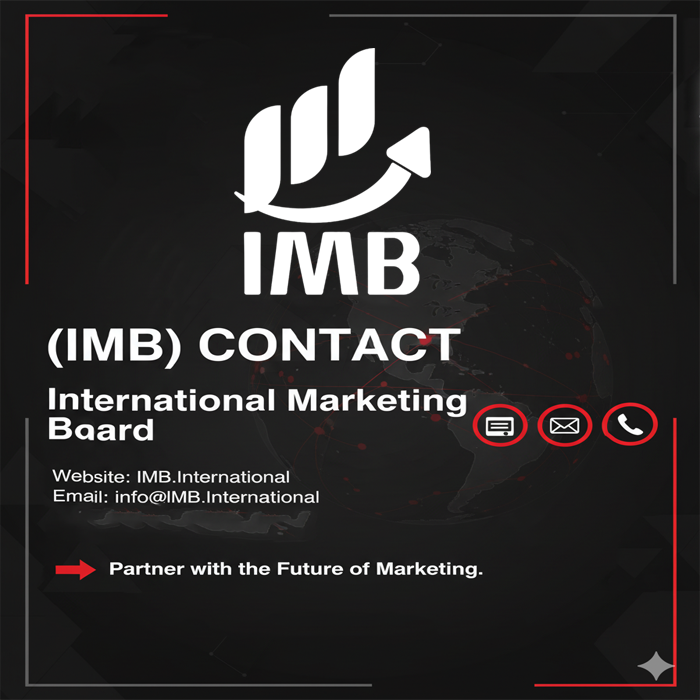
Get Internationally Certified
Stand out in the market with an international marketing certification from IMB International and boost your career today.
Start NowFrequently Asked Questions
What are the most effective different types of marketing strategies for small businesses?
Small businesses benefit most from cost-effective digital marketing strategies including social media marketing, email campaigns, content marketing, and local SEO optimization. Understanding which different types of marketing strategies work best for limited budgets helps small businesses compete effectively. These approaches provide measurable results with limited budgets while building authentic customer relationships systematically.
How do different marketing approaches impact customer acquisition costs?
Various marketing strategies produce different customer acquisition costs, with digital channels typically offering lower costs than traditional methods. Understanding how different types of marketing strategies affect acquisition costs helps businesses optimize their marketing budgets effectively. Email marketing averages $7 CAC, while social media ranges from $15-50 depending on the platform and targeting specificity.
Which marketing techniques generate the highest ROI for B2B companies?
B2B companies typically achieve highest ROI through content marketing, LinkedIn advertising, email marketing, and search engine optimization. Organizations implementing different types of marketing strategies specifically for B2B audiences see better lead quality and conversion rates. These marketing approaches build trust and authority while attracting qualified leads actively seeking business solutions.
How often should businesses evaluate and adjust their marketing strategy mix?
Successful businesses review marketing performance monthly while conducting comprehensive strategy evaluations quarterly. Organizations utilizing different types of marketing strategies should monitor performance continuously for optimal results. However, real-time monitoring enables immediate adjustments to underperforming campaigns and budget reallocation to high-impact activities.
What role does marketing certification play in career advancement?
Marketing certification demonstrates professional competency and commitment to excellence, leading to 25% higher salaries and 40% faster career advancement. Certified professionals gain credibility with employers and clients while staying current with industry best practices.
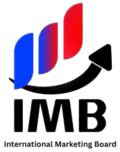
Great information!
mfive88? Sounds interesting! The site seems pretty slick. Will be trying it out right away! Give it a look here: mfive88
Heard some buzz about casinoganamax. Going to give it a whirl tonight. The site looks slick and the bonuses are tempting. Wish me luck! Learn more here: casinoganamax
taya333 https://www.taya333.org